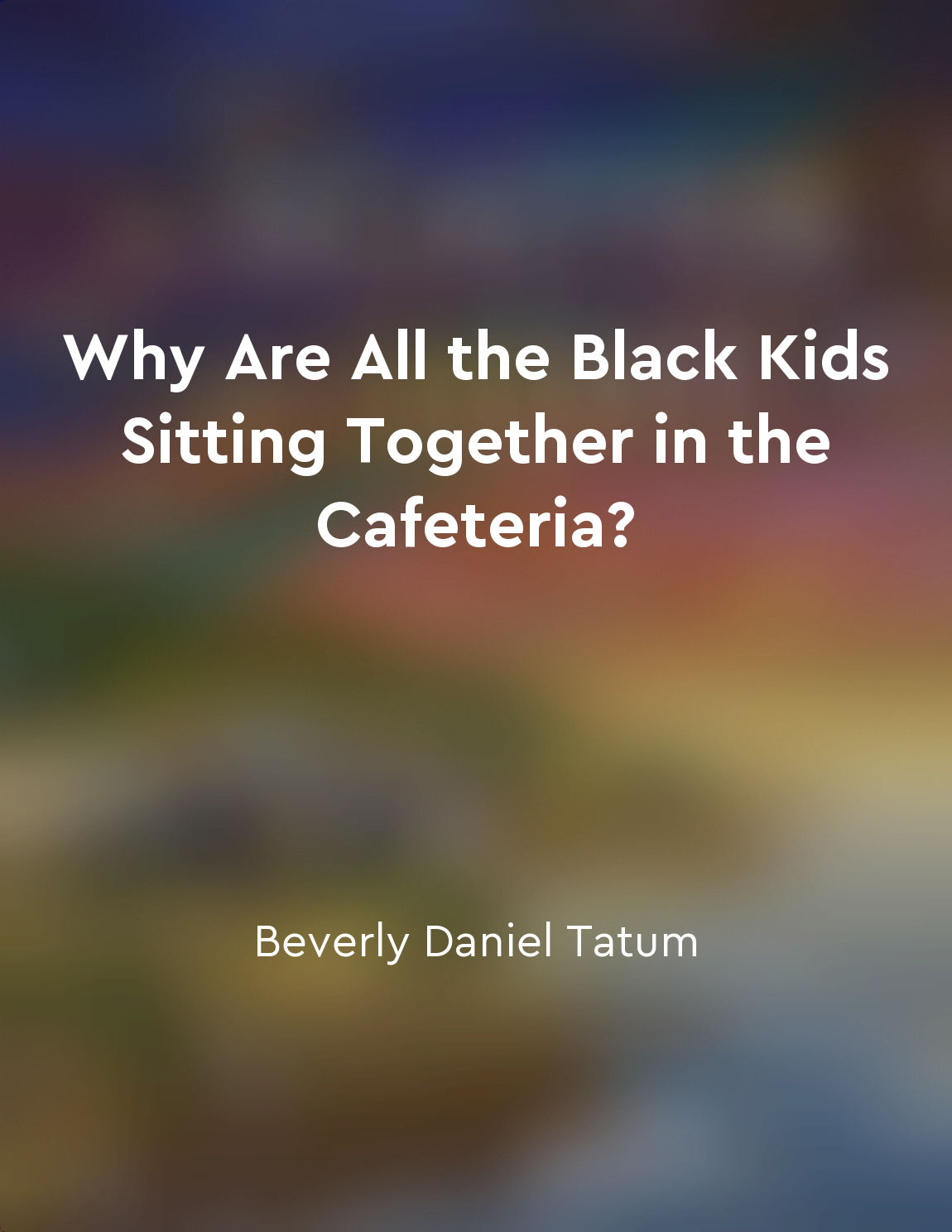Student activism can drive change from "summary" of Why Are All the Black Kids Sitting Together in the Cafeteria? by Beverly Daniel Tatum
In the world of education, students have historically played a significant role in driving change. By organizing and mobilizing around specific issues, student activists have been able to bring attention to injustices and push for meaningful reforms. This is particularly true in the realm of racial equity and social justice. Student activism can be a powerful force for change because young people bring a fresh perspective and a sense of urgency to the table. They are often unafraid to speak truth to power and challenge the status quo. In the context of racial segregation and discrimination, students have been at the forefront of demanding equality and justice. One example of student activism driving change can be seen in the civil rights movement of the 1960s. Young people across the country organized sit-ins, marches, and demonstrations to protest segregation and demand equal rights for all. Their efforts helped to bring about significant legislative changes, such as the Civil Rights Act of 1964 and the Voting Rights Act of 1965. In more recent years, student activists have continued to make their voices heard on issues such as police brutality, immigration reform, and LGBTQ rights. Through social media and other forms of communication, young people have been able to mobilize on a larger scale and reach a wider audience than ever before. Student activism can also have a lasting impact on school environments. By advocating for diversity and inclusion, students can help to create a more welcoming and supportive atmosphere for all. This can lead to changes in curriculum, hiring practices, and school policies that benefit marginalized communities.- Student activism has the power to drive change by challenging inequities, amplifying marginalized voices, and inspiring others to take action. It is a vital force in the fight for social justice and a more equitable society.
Similar Posts
The politics of knowledge influence educational practices
The ways in which knowledge is valued and transmitted within educational institutions are deeply intertwined with larger power ...
Educational equity requires addressing systemic injustices
Educational equity necessitates a comprehensive examination of the systemic injustices embedded within the educational system. ...
Action research fosters inquiry
Action research is a process that encourages educators to question their practices and engage in systematic inquiry to bring ab...
Understanding oppression in educational contexts
Understanding oppression in educational contexts is a critical component of Paulo Freire's work. Oppression refers to the syste...
Committing to ongoing selfreflection and growth
Engaging in ongoing self-reflection and growth is a fundamental aspect of Freire's Pedagogy of the Oppressed. This concept revo...
Taking bold actions for change
The concept of taking bold actions for change is central to the philosophy of the Black Panther Party. It is not enough to simp...
Education can be a tool for social change and empowerment
Education is not just about acquiring knowledge; it is also a powerful tool for bringing about social change and empowering ind...

All students deserve to feel valued and supported
In a diverse educational environment, it is essential that all students feel valued and supported. This means creating a school...

